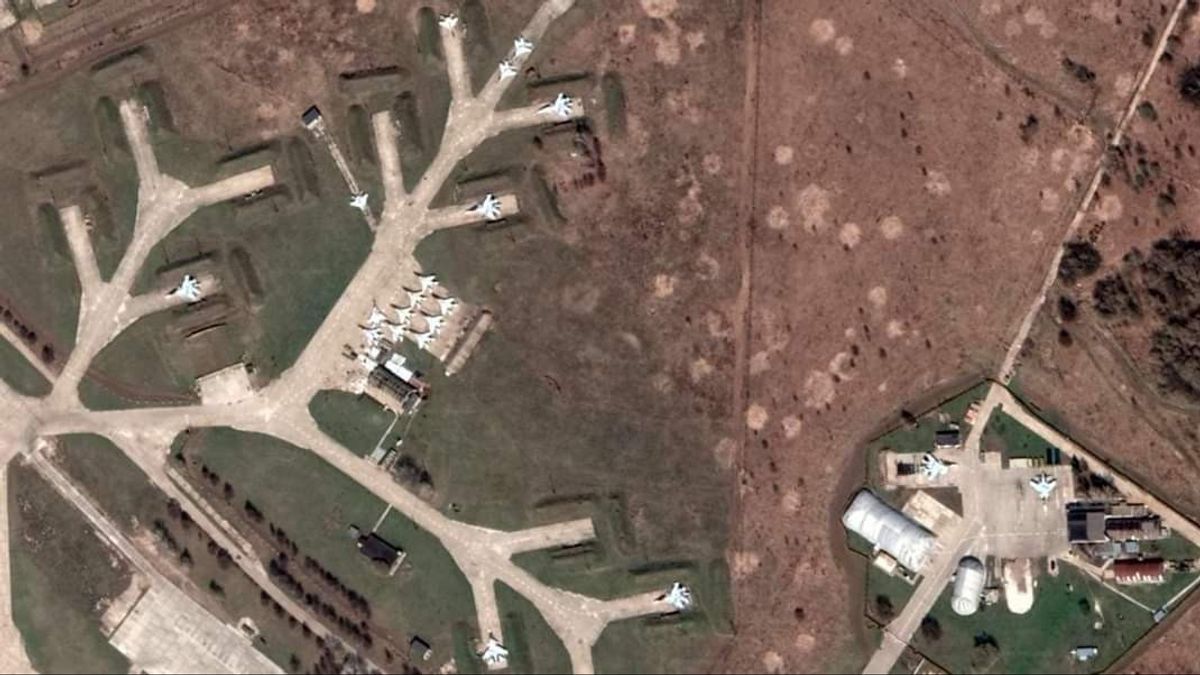JAKARTA - Google says it hasn't made any changes to how it censors Russian satellite imagery. This contradicts claims widely circulated on Twitter that they have "opened access to Russian military and strategic facilities."
Early Monday 18 April, the Twitter account @ArmedForcesUkr, which has so far been unverified but has been quoted several times by the official account of the Ukrainian Ministry of Defense, tweeted a series of images that appeared to show military facilities.
The tweet's message translates roughly to: "now everyone can see Russian launchers, intercontinental ballistic missile mines, command posts and secret dumps at a resolution of about 0.5 meters per pixel."
The post has been cited by news organizations such as The Moscow Times, and the English translation of the tweet has been shared thousands of times.
️GOOGLE MAPS ДО 'ЄКТІВ .Тепер ожен оже обачити оманітні осійські ові ановки, ахти онтинентальних алістичних акас, ео андні, ео андні, ео андні, ео андні е о андні е о андні е о алістичних е о алістичних ️GOом алістичних ⚡️GOOGLE MAPS ⚡️GOOGLE MAPS ️GOOGLE MAPS pic.twitter.com/i75wR8Efwo
— Armed Forces (@ArmedForcesUkr) April 18, 2022
The Verge can also confirm that at least one image of the tweet is available on Google Maps, and that it depicts an active Russian military site. The Verge was also able to find other examples from Google Maps showing other bases in the country.
However, Google says this is nothing new. In an email to The Verge, Google spokesman Genevieve Park said, "We haven't made any subtle changes to our satellite imagery in Russia." While the images circulating may be legitimate and valid. The images were available on Google Maps long before the Russia vs Ukraine conflict.
It's not uncommon for Google to obscure maps of potentially sensitive areas, including military locations. For example, Google Maps pixelated an image of the French Air Force 705 airbase.
However, there are many other military installations that are publicly viewable. Even Google Maps lets users view detailed satellite imagery of the US Nellis Air Force Base and even the famous Area 51.
It should also be noted that the militaries of major powers have access to satellite imagery that is not subject to any modification from Google.
Google has taken several actions against Russia since it invaded Ukraine. Google has even temporarily halted ad sales in the country, cut off access to Google Pay for some Russian users in accordance with the sanctions, and banned Russian state media accounts from running ads on their YouTube channels.
The Russian government has also threatened to fine the company because it thinks YouTube has videos that contain "misinformation" about the Russian invasion.
The English, Chinese, Japanese, Arabic, and French versions are automatically generated by the AI. So there may still be inaccuracies in translating, please always see Indonesian as our main language. (system supported by DigitalSiber.id)









